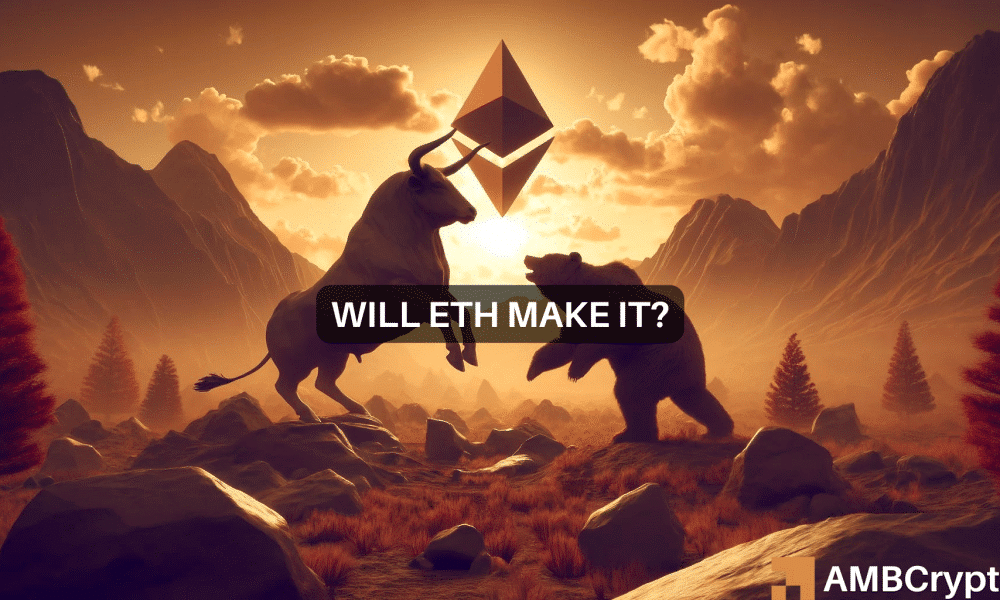The long-awaited Ethereum Merge is set for yet another delay, with developers working on the upgrade estimating a completion time a “few months after” June.
Owing to the success of testing, there was a general expectation the Merge would go through mid year, however the latest setback is unsurprising given that Proof of Stake has been delayed constantly ever since it was first proposed.
That said, the signs are promising that the Ethereum mainnet will actually merge with the beacon chain to become a Proof-of-Stake (PoS) network this year. For real.
Ethereum developer Tim Beiko provided the updated timeline via Twitter yesterday, tentatively stating that the core devs are into the final stretch:
“It won’t be June, but likely in the few months after. No firm date yet, but we’re definitely in the final chapter of PoW on Ethereum.”
After noting that his comments caused a stir amongst Ethereum proponents and haters alike, Beiko followed up today by observing “that it can be hard to parse the progress on The Merge when you aren’t deep in the process.”
To provide further context, Beiko published a blog post with a deeper rundown.
Didn’t expect my tweets from yesterday to cause such a reaction I appreciate that it can be hard to parse the progress on The Merge when you aren’t deep in the process.
Tried to provide some context here: https://t.co/QTZ7CuapMf pic.twitter.com/MVXdPEj3NX
— Tim Beiko | timbeiko.eth (@TimBeiko) April 13, 2022
According to the developer, a specific date will not be set until “client teams are confident that the software implementations have been thoroughly tested and are bug-free.”
Central to these latter stages are the trial runs of public test nets such as Kiln, and the roll out of shadow forks which enable devs to test various merge/PoS-related implementations on the network.
Difficulty bomb ticking
Another important factor is the difficulty bomb (an automated increase in mining difficulty designed to make PoW mining less attractive), which Beiko says will start to be noticeable on Ethereum around May and make blocks “unbearably (read 15-20 seconds) slow by August.”
“If client developers do not think they can deploy The Merge to mainnet before block times are slowed too much, it will need to be delayed again,” he said.
Beiko put forward two ways in which the difficulty bomb could potentially be delayed to usher in the Merge upgrade beforehand, firstly combining a bomb delay with merge client releases to delay the “bomb at a certain block, restoring 13s block times, and then activate The Merge shortly after.”
Secondly to separate the bomb delay via network upgrade “which only delays the difficulty bomb” prior to the merge.
“The Merge, unlike previous Ethereum upgrades, will not be triggered by a block time. Instead, it will be triggered by a total difficulty value. Given these are harder to estimate than block times, the delay between choosing a time for The Merge and it going live on the…
Read More: cointelegraph.com









 Bitcoin
Bitcoin  Ethereum
Ethereum  Tether
Tether  Solana
Solana  USDC
USDC  Lido Staked Ether
Lido Staked Ether  XRP
XRP  Toncoin
Toncoin  Dogecoin
Dogecoin  Cardano
Cardano  Shiba Inu
Shiba Inu  Avalanche
Avalanche  TRON
TRON  Wrapped Bitcoin
Wrapped Bitcoin  Polkadot
Polkadot  Bitcoin Cash
Bitcoin Cash  Chainlink
Chainlink  NEAR Protocol
NEAR Protocol  Polygon
Polygon  Litecoin
Litecoin  Internet Computer
Internet Computer  Fetch.ai
Fetch.ai  Uniswap
Uniswap  LEO Token
LEO Token  Dai
Dai  Ethereum Classic
Ethereum Classic  Pepe
Pepe  Hedera
Hedera  Render
Render  Aptos
Aptos  Wrapped eETH
Wrapped eETH  Immutable
Immutable  First Digital USD
First Digital USD  Cosmos Hub
Cosmos Hub  Cronos
Cronos  Filecoin
Filecoin  Mantle
Mantle  Stellar
Stellar  Arweave
Arweave  Stacks
Stacks  Renzo Restaked ETH
Renzo Restaked ETH  OKB
OKB  The Graph
The Graph  Optimism
Optimism  dogwifhat
dogwifhat  Arbitrum
Arbitrum  Maker
Maker  Bittensor
Bittensor